Rose essential oil may offer several potential wellness effects, from relieving discomfort to helping manage anxiety and stress. Nonetheless, additional studies are needed to confirm these benefits definitively.
Rose oil is extracted from the rose plant. Some individuals diffuse the essential oil or blend it with a carrier oil for topical massage. It’s also commonly used in perfumery.
If you are thinking about using rose oil, consult a physician for guidance. Depending on the issue or symptoms you hope to address with rose oil, your healthcare provider might suggest other options that have stronger scientific support.
Continue reading to explore the possible advantages of rose oil and how to apply it.
Although research indicates potential health effects, the FDA does not oversee or regulate the purity or quality of essential oils. Speak with a healthcare professional before starting essential oils and investigate the quality of a brand’s offerings. Always perform a patch test before trying a new essential oil.
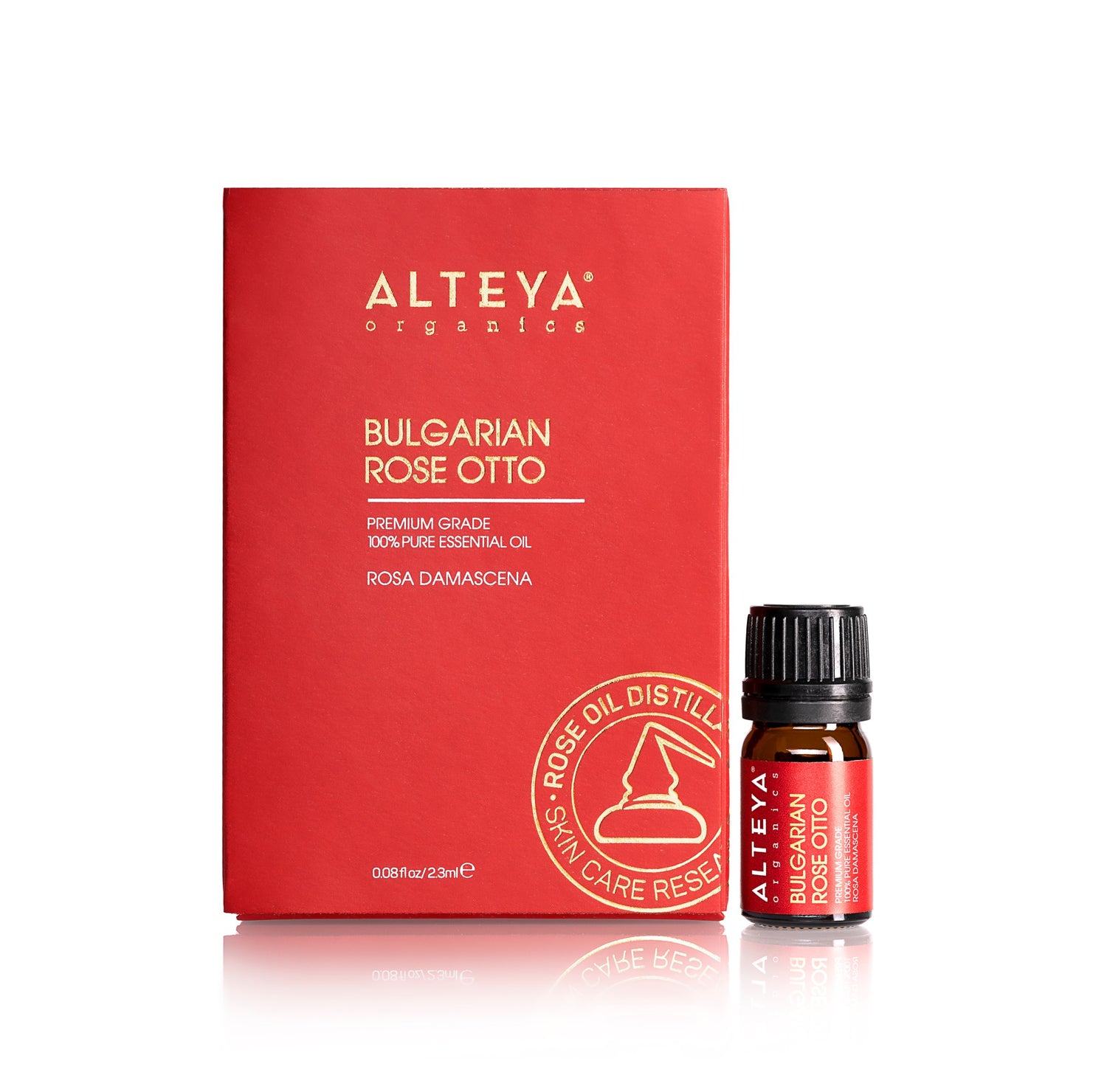
Eases pain
A review found that inhaling rose oil may help reduce pain. This includes reducing pain associated with renal colic in emergency settings and lowering postoperative pain in children.
However, the review notes that much of the evidence comes from animal studies. More human research is required to substantiate rose oil’s pain-relieving effects.
Learn more about essential oils for pain relief.
Relief from menstrual discomfort
A 2023 study reported that inhaling rose oil can help ease primary dysmenorrhea, which is menstrual pain occurring without an underlying condition.
The study suggests some people may consider adding rose oil to their plan for menstrual pain, either alongside or instead of standard nonsteroidal anti-inflammatory drug (NSAID) treatments.
A 2016 study notes that some people apply rose oil to the abdomen to help manage period pain. If you try this, be sure to dilute the oil with a carrier oil first.
Learn more about essential oils for menstrual cramps.
Provides antimicrobial properties
Researchers found that essential oil distilled from roses can act against a variety of microbes that cause infections. This includes E. coli as well as certain strains of bacteria responsible for staph infections (Staphylococcus) and strep throat (Streptococcus).
Physicians typically recommend medical therapies for bacterial infections. Consult a doctor before attempting to treat an infection with rose oil or any other essential oil.
Learn more about essential oils and killing bacteria.
Stimulates sex drive
Two studies observed that inhaling rose oil increased sexual desire and satisfaction among participants assigned male at birth, and to a lesser degree among those assigned female at birth.
One study involved male participants with major depressive disorder who were taking antidepressants, and the other involved female participants with the same condition and on antidepressant medication.
Researchers propose that dopamine release in the brain—a known motivator—may underlie the enhanced sexual desire while also lessening depressive symptoms.
Learn more about essential oils for stimulating sex drive.
Decreases anxiety and stress
A 2024 review of 93 papers found that aromatherapy with rose oil helped some individuals reduce stress and anxiety. The review concluded that inhalation or topical application of rose oil is generally appropriate for achieving these effects.
Always dilute essential oils with a carrier oil, such as almond or jojoba, when applying them topically.
A 2019 study investigated rose oil’s effect on anxiety in people awaiting septorhinoplasty or rhinoplasty and found that inhaling rose oil reduced preoperative anxiety.
Learn more about essential oils for anxiety.
Eases depression
Several clinical studies suggest rose oil may help improve symptoms of depression.
A 2024 study evaluated the antidepressant-like effects of Rosa damascena essential oil in rats and found it reduced depressive-like behaviors.
A review of clinical studies also concluded that rose oil may help lessen depressive symptoms, although it emphasized that many studies have focused on animals.
Further human research is needed to clarify rose oil’s potential benefits for depression.
You may choose aromatherapy massage over simple inhalation when aiming to ease depression, but how effective this will be remains uncertain.
Learn more about essential oils for depression.
How to use rose oil
Rose oil is often costly and highly concentrated. Always dilute it whether you plan to inhale it or apply it to the skin.
To create a rose oil bath, add 2 to 12 drops of rose essential oil to a warm tub. Essential oils should be mixed with a carrier oil before adding to water—combine the drops with something like jojoba oil, then pour into the bath.
For a foot bath, place only a couple of drops into a tablespoon of carrier oil, then add that to the water.
To address anxiety, stress, or depression, inhale rose oil via a diffuser or dab a small amount on your chest, neck, and wrists.
If applying the oil to skin or using it in massage, blend it with a carrier oil first, such as coconut or jojoba oil.
Before using any complementary or alternative treatment, discuss current medical conditions, potential drug interactions, and side effects with your doctor.
Learn more about how to use essential oils.
Safety tips
Essential oils are potent and concentrated. If inhaling any essential oil, add a few drops to a diffuser or sniff the container’s lid rather than placing your nose right over the bottle. Excessive inhalation can cause headaches.
When applying to skin, mix a few drops of rose oil into a carrier oil first to prevent irritation.
Rose oil, like many essential oils, should not be consumed.
Some essential oils may be unsafe for pregnant or breastfeeding individuals. Consider who will be exposed to the scent when diffusing oils.
If young children or pets are present, consult a pediatrician or veterinarian before introducing essential oils, as many can be toxic to children and animals. Always store oils out of reach.
The American Society for the Prevention of Cruelty to Animals advises these precautions when using essential oils around pets:
- Never apply essential oil directly to your pet.
- Keep pets out of rooms where a diffuser is running.
- Place your diffuser where pets cannot reach it.
Learn more about the safety of essential oils.
Are there any known side effects of essential oils?
There are few reported adverse effects of rose essential oil.
Still, performing a skin patch test to check for allergic reactions before using the oil is wise.
To do a patch test, apply a small amount of diluted rose oil mixed with a carrier oil to the inside of your elbow. If no itching, swelling, or discoloration occurs within a few hours, it’s likely safe to use on the skin.
It’s also advisable to consult a medical professional before using essential oils to ensure they are appropriate for your specific situation.
What’s the difference between rose oil and rosehip seed oil?
Rosehip seed oil is extracted from the seeds and fruit under the rose bloom—the portion visible once the petals fall. It’s less concentrated than an essential oil and is commonly used as a carrier oil. It may support skin repair and reduce signs of aging.

Tips for buying rose oil
Rose essential oil is available at natural food stores and from online retailers.
Common varieties of rose oils include those from R. damascena and R. centifolia. Experts at the University of Minnesota suggest checking the label for the plant’s Latin name and country of origin to assess source quality.
Choose dark amber or deep blue bottles, as light can degrade essential oils.
When buying in-store and a tester is available, test for dilution by placing a drop on paper—an oily ring may indicate the oil has been mixed with vegetable oil.
Avoid products labeled “rose fragrance oil,” which are likely synthetic scents rather than true essential oils.
The bottom line
While more research is necessary to fully verify some claims, rose oil may help relieve pain, reduce anxiety and depression, and boost sexual desire.
Rose oil can be used via a diffuser, added to baths, or applied topically when mixed with a carrier oil.
When purchasing rose oil, choose brands that list the Latin name and country of origin.
Always consult a healthcare professional before using essential oils to treat a medical issue. They can advise on rose oil’s safety and may recommend more appropriate treatments.

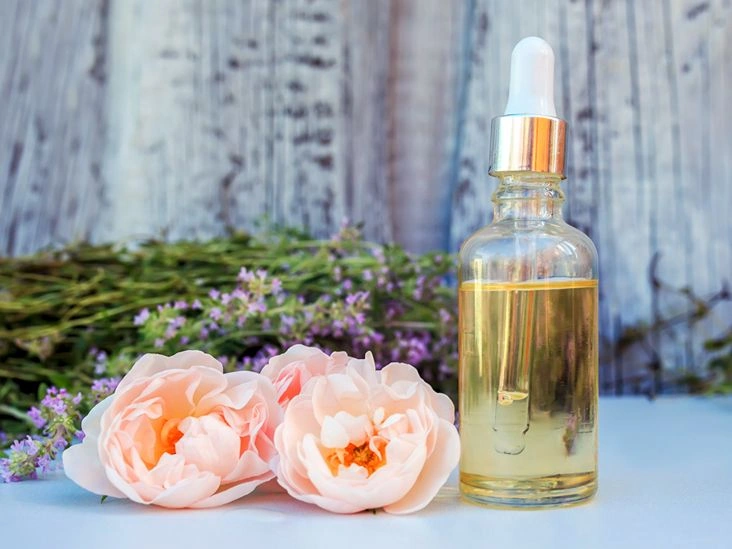


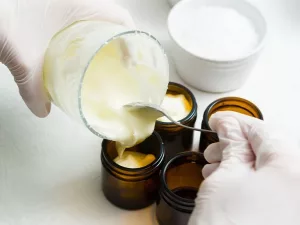










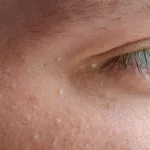



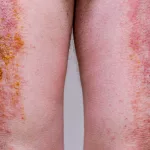

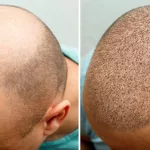


Leave a Reply
You must be logged in to post a comment.